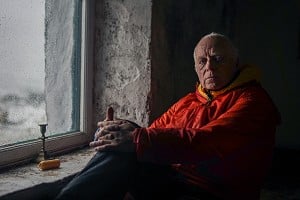
On his descent he assisted another climber - Cleo Weidlich - when she became ill and stranded on the mountain. This is his blog account, first published on the 28th May 2011 on his website: Anselm-Murphy.com. It is with his kind permission that we republish it on UKC.
The story is gripping and scary and highlights the dangers and difficulties of high altitude mountaineering.
Anselm is now safely back in the comfort of his own home - he commented to UKC: "I'm really enjoying being back home! I'm eating like a horse right now. I'm more or less back to normal, I got a bit of frostnip on my toes but it looks like they'll be back to normal in a few weeks."
Rescue on Kanchenjunga 2011 - Blog Account - by Anselm Murphy
Brazilian-American team mate Cleo Weidlich got into trouble on the way down. On descent from the summit she began to lose her vision, and she had also sustained an injury to her right knee which occurred at 8500m that turns out to have been a ruptured parallel ligament. She managed to get down to high camp at 7500m with the help of her three personal sherpas. The morning of the next day she was not in good shape. Ted Atkins examined her and she complained that she felt great pressure pushing on the backs of her eyes. This, along with the fact that she had trouble walking and needed to sit down frequently, and her irrational refusal to take oxygen or drugs convinced Ted that she was suffering from cerebral oedema. It is possible that the loss of vision was caused by snow blindness, but the pressure behind her eyes strongly suggests cerebral oedema. Snow blindness feels like you have sand in your eyes.
Everyone was exhausted after the summit and started descending the mountain. Cleo left with her sherpas before me and I watched her from a distance. She seemed to be taking only a few steps, aided by a sherpa holding each arm, before sitting down to rest. Progress was painfully slow. I approached her and found Mingma Sherpa (organizer of this expedition) near Cleo using her satellite phone to request a helicopter evacuation. Cleo seemed to think this was possible from our current altitude (c7400m) but was told that she needed to get down lower, preferably to Camp 3 at 7000m. I talked to Cleo and tried to convince her to allow us to give her a shot of dexamethasone, a drug that would help with her cerebral oedema. She initially refused, so I talked to Mingma (organiser of this expedition) to see if he could influence her. Eventually I succeeded in persuading her, and a few minutes later Ted Atkins arrived, who administered the shot.
I now said that I would hurry down to Camp 3 and look for a suitable area for the helicopter, and find something to mark it with. Ted also decided to come down but was a short while behind me. I was very tired at this time and progress down to Camp 3 was slow, I had to take frequent breaks. Ted later reported that the shot of dexamethasone kicked in about 10 minutes after it had been given and Cleo perked up a bit. I eventually reached Camp 3 where many climbers were stopping for a brief rest on their way down to basecamp. I was extremely slow when I arrived which I attributed primarily to dehydration so I borrowed a stove from Pawel Michalski and started melting ice. Several climbers needed water so I kept at this for a while. As I as doing this the weather changed and visibility became very poor, so the helicopter rescue was definitely off for that day.
Ted Atkins arrived at Camp 3 while I was melting ice. Gradually all other climbers (approx 25-30 people had summited the previous day) left Camp 3 and descended the mountain and only Ted and I, and several sherpas were left. The sherpas seemed primarily concerned with clearing the camp of gear – tents, oxygen, other equipment. At this moment Ted and I made the decision to stay at Camp 3 in order to help Cleo. We were very worried that the sherpas wanted to take everything down, and that no equipment would be left to aid Cleo. Sherpas were taking down many partially used oxygen bottles and we decided it would be essential for Cleo's survival to have a reasonable supply of oxygen, after all she would now have to spend at least one more night above 7000m.
We met with strong resistance from the sherpas when we requested they leave behind some oxygen. For some reason clearing the mountain seemed to be their main priority, and the rescue was not being taken seriously in my opinion. We found one sherpa who had a completely full bottle and said we needed this to help Cleo. Ted owned another full bottle that was below us in Camp 2, and we offered this in exchange. This would mean the sherpa lost nothing, and saved having to carry the bottle down. Unbelievably, and with a woman's life in danger, he refused to let us have the oxygen unless we paid him $400 (normal price $280). Even more unbelievably, it later transpired that this was not even his oxygen to sell, as he claimed, but belonged to his client, who had already descended. With no choice, Ted and I agreed to pay him at basecamp. I was all the more shocked because this was a sherpa who I had previously respected a lot. We also managed to get a 2/3rds full bottle from the sherpa sirdar (climbing leader), after quite a bit of persuasion. We also had to fight to prevent him from taking down all the tents, so he left one 3 man tent that Ted and I could stay in and use as a base to help Cleo. As the sirdar left, he promised that if a helicopter did not arrive to evacuate Cleo in the morning, he would send up a five or six sherpa rescue team to get her down. I do not understand why the could not just stay at Camp 3 in the first place. We also had the problem of communications – Ted and I had no radio, and neither did Cleo.
Soon everyone had descended and it was just Ted and I left at Camp 3. Then one of Cleo's three sherpas arrived. He said that Cleo and the other sherpas had put up a tent about 100m above our current postion. (Camp 3 is located at the bottom of a large, steep, ice serac and it had been decided that to get Cleo down this would prove too difficult, and anyway the top of the serac was a good spot for the helicopter to pick her up) He had apparently been sent by Cleo to look for food and gas canisters to melt snow. We offered him both, which he strangely refused, as when I later spoke to Cleo she said she had no food or water that night. We also had to really beg him to take one of our oxygen cylinders up to her, which he was reluctant to do for reasons I don't understand. He did eventually take the oxygen, then two hours later, in an act of total stupidity and wasted energy, he returned to our camp with the oxygen and said that Cleo had refused it. When I later questioned Cleo on this she said she was never offered the oxygen. I guess it is possible that she did refuse it and has no recollection of this due to cerebral oedema, but even if that is the case it is astoundingly stupid to have not urged her to take it. Not only was the oxygen not administered, the sherpa went to the tremendous effort of climbing down to us to give it back, then re-climbing the serac back up to Cleo to spend the night.
It was now fairly late so Ted and I settled in for the night. We had planned on being down at basecamp this day so had no real food to eat. We had a scavenge among the remnants of Camp 3 and found a few snacks, and Ted had one tin of fish. We both had a pretty uncomfortable night and I got headaches from dehydration/altitude. The only people left on the mountain now were Cleo and her three sherpas at approx 7100, and Ted and I 100m below. Ted and I were both concerned that too much hope was being placed on this helicopter evacuation, but that it was far from certain to be successful and there was no back up plan. I made a plan to climb up to Cleo in the morning carrying oxygen and dexamethasone and urge them to get moving down the mountain.
In the morning I asked Ted to talk me through giving a dexamethasone injection correctly (he spent years in the RAF mountain rescue team, and I have no medical training). Ted now decided that despite his exhaustion, he had better climb up too. We each took one of the oxygen bottles and I set out first. I arrived at Cleo's camp about 10 minutes before Ted. Two sherpas were standing outside the tent, and when I moved to go inside I found the third, youngest sherpa crouched in the porch looking inwards. He didn't react to me or acknowledge my presence at all and I found his behaviour odd. I squeezed into the tent, which was empty of all gear, and found Cleo sitting there. She said the young sherpa had been telling her that she was going to get them all killed. He seemed to be scared and have cracked. Cleo told me she had not been given food or water so I provided her with what little I had on me. I then got my oxygen set on her, and this seemed to help. She was very upset and distressed and worried that she might not make it down. She was relieved to see me and said the sherpas had not been too helpful. I assured her that we would get her down somehow and would not leave her there. Ted arrived soon and administered another shot of dexamethasone, which again, after a few minutes, did seem to help. Ted then said he would descend to Camp 3 again and start packing stuff up in preparation for our descent down the mountain. I decided to stay with Cleo and supervise her descent down to Camp 3 because I was not convinced the sherpas were taking the best care of her. At roughly the same time as Ted left, one of Cleo's three sherpas descended and we did not see him again. So I was now left with Cleo and her two sherpas at 7100m.
Cleo had a satellite phone and complained that the previous evening the sherpas had been using it to call home etc and now it's battery was dead. Before this happened she had managed to get a call to the helicopter rescue company and they had said they would send a helicopter that morning. The marker it would be looking for was their tent. According to Cleo the sherpas kept wanting to take this down but she stopped them. By this time it was something like 10am and I thought it unlikely the helicopter would arrive (the most stable weather is in the morning so a rescue is most likely early, like 7 or 8am.) I explained to Cleo my lack of faith in the helicopter and put forward my and Ted's view that her best chance of survival was to start moving down the mountain and look at the helicopter as something that we could not rely on.
We started to get ready to descend, and the sherpas took the tent down. The sherpas, the older one in particular, had massive loads. I suggested to him several times that he leave this load behind as it was obviously not a priority, but this was ignored. For some reason getting the empty oxygen bottles etc down the mountain was very important to them. As soon as we were ready to descend, we heard the distant sound of rotor blades proving me wrong. There was immediate elation as we all of a sudden had an easy way out for Cleo. Apparently the plan was to 'long line' her, which involves dropping a 10m line and her clipping on to it, then being flown away. Sounded scary to me, but better than dying at 7100m. The altitude we were at is pretty much the helicopter's operational ceiling (I think officially it might be 7000m), so it had very little power to spare, and had to rely on long lining instead of landing. The helicopter circled a few times, then made a couple of close passes. It then made one extremely close pass over our heads and swerved off down the valley. It wasn't able to make the rescue. It disappeared into the distance. My heart sank and I felt like I was going to cry. To think that everything is going to be OK, then have it fall apart in a matter of minutes was unbelievably depressing. Everyone was silent for quite a while. I tried to pull things together and stop Cleo from being too upset by this. I said it doesn't matter, we had a plan before to get her down ourselves and we would just stick to this. Cleo took the disappointment well and just got on with it. The sherpas at basecamp must have seen the helicopter and assumed that Cleo got on it (an assumption initially shared by Ted at Camp 3), because the promised sherpa rescue team from the previous day ultimately never appeared.
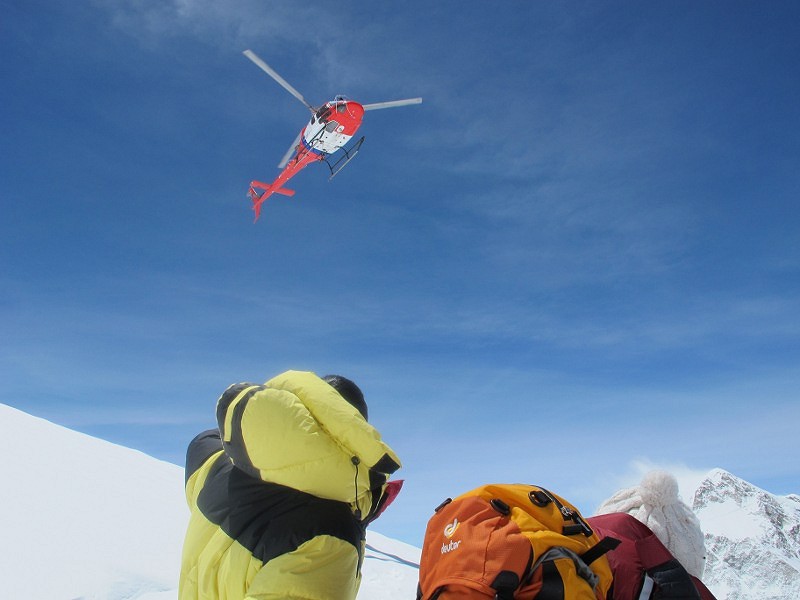
We started to climb down. Cleo said that she could now see slightly through her left eye which was a great help. She was breathing oxygen at 1.5l/min too, which was a massive boost. The older sherpa went down first, then me. I made sure Cleo stayed only a couple of steps behind me and that she could see my tracks in the snow and follow them exactly. The younger sherpa followed behind. When we got to the serac Cleo assured me that she was able to use her figure 8 descender (lucky, because otherwise it would have been a problem!) I rigged her descender for her and she abseiled down to the first anchor. I then came down after her and again checked her ropework for the next abseil. After 3 abseils we were on safe, easy ground and walked into Camp 3. One of her sherpas had taken down our tent. They were eager to get going down so after giving Cleo some water her two sherpas started the descent to Camp 2, and we asked them to take her with them. Ted and I would catch them up soon, but we couldn't leave yet as we needed to pack up our kit which was still spread all over the place (when we climbed up to Cleo we had taken only the bare essentials).
We were both exhausted and lacking food/water, so when Cleo and the sherpas left it took us quite a while to pack up, I think about 1 1/2 hours. We ended up with with massive loads each, as we had all our own equipment to carry, plus the tent we had slept in and promised the sirdar we would bring down. I also carried another bottle of oxygen because I was concerned Cleo might not have enough. I finished packing before Ted so he said I should start descending and he would catch up with me in a few minutes, so I left.
After I had been descending for only about five minutes, I got to a snow slope that was not equipped with any fixed rope. If you fell on this slope and were not able to arrest the fall, you would slide off the edge of a serac and plummet to the glacier below. In the distance below me I saw a figure laying motionless in the snow. As I got closer I was shocked to see that it was Cleo. She was face down in the snow, facing downhill. I climbed down to her and found she was unconscious. How the hell has this happened? She was sent down with two sherpas. Looks like she had been abandoned at an altitude of slightly under 7000m. There was no one else high on mountain at this time, just Ted and I. If we had not found her, I believe she would have died. I woke her up and held onto her as I got her to right her position on the slope (she was upside down) She was extremely distressed and crying and didn't know how she had got there. She started telling me to go down and leave her – I said that's not going to happen. She had snow all over her and some seemed to be partially blocking the ambient air intake valve on her oxygen mask so I cleared it out. I then doubled the flow rate on her oxygen set to 3l/min. After a couple of minutes she was calmed down and in a better state. Ted arrived a couple of minutes later and I explained the situation to him. Below is a picture of how I found Cleo.
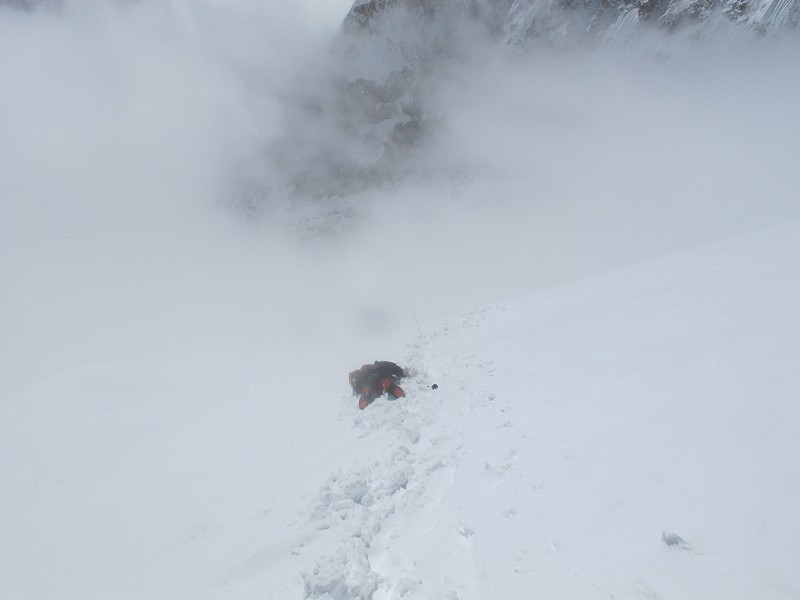
We needed to get down as quickly as possible. At this stage it was the seventh day above basecamp for each of us, with 6 of those days being above 7000m. We were in poor shape and everything was a struggle. We had hardly any food. We started to move down with me in the lead, Cleo one or two steps behind me and Ted in the rear. The section we were on traverses a snow slope above a serac and has no rope, so I kept encouraging Cleo to take her time and go as slow as possible, because if you fell here it could prove fatal. Cleo had a minor fall, but we got her back on track. We were traversing a moderate snow slope in the middle of the day (worst possible time) so there was avalanche risk. We then got to the edge of the serac and abseiled down that in the same manner as before, checking Cleo's ropework. The terrain then got easier, but it was still slow progress. When we were just a few rope lengths away from Camp 2 we were met by the younger brother (not himself a climbing sherpa) of one of Cleo's sherpas. He had apparently come up to help the sherpas clear Camp 2.
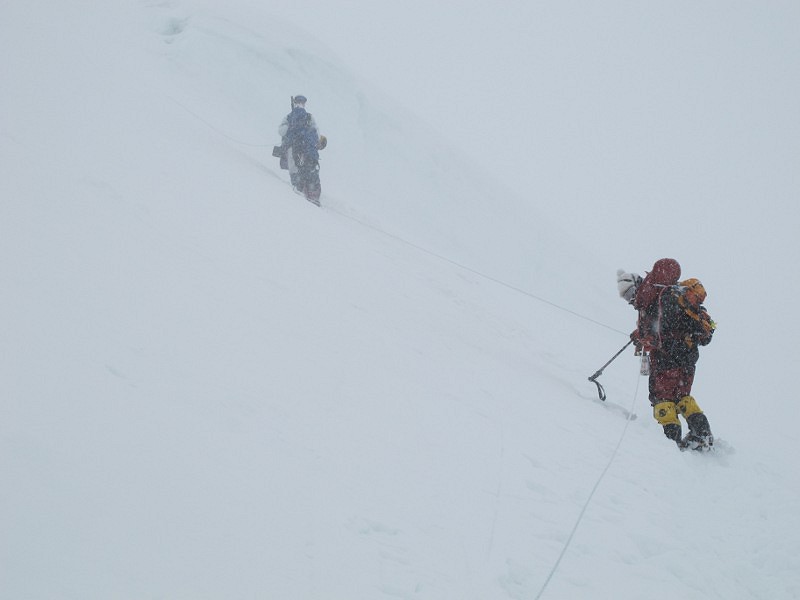
When we got into Camp 2 we were very disappointed to find that all tents and equipment had been cleared away by the sherpas. We arrived in a snowstorm. We really could have down with a bit of respite here but we got none. We descended a few minutes below the regular Camp 2 to a spot where a few tents had previously been placed in the hope they might still be there. They were not, but we found the younger of Cleo's sherpas crouched there, again not moving and acting a bit strangely. I repeatedly asked him why he had left Cleo, and initially he simply would not answer the question. Eventually he said that Cleo told him to leave. When later questioned about this, Cleo says she has no recollection of telling them to leave. Again, I believe it is possible that this happened, and that being sick Cleo can't remember. Even if this is the case, it I think it is a very poor excuse. These people were paid to help Cleo and should not have left her alone. She was sick with cerebral oedema, had poor vision and an injured leg. If she told them to go they should have ignored her and stayed. If she did tell them to go then it should have been obvious to anyone that she was sick, in danger and did not know what she was saying.
Ted and I had carried down our tent from Camp 3 so were going to put that up, but we found that Cleo's sherpa had one of her tents that he was going to take down the mountain. We asked him and his brother to put it up, which he did. It was a three man tent so just space for Cleo, Ted and I. The young sherpa now seemed to want to make up and offered to stay but we said there was no point, and that he might as well descend to basecamp. It was about 6:30 now and getting dark, and there was no way Cleo could make any more progress that day so we were resigned to the fact that we would be spending the night here at Camp 2. I could see that this young sherpa had been through a lot and was very stressed. When Ted made a comment about being hungry this seemed to anger the sherpa who shouted that he was hungry too. I feel sorry for him, I think he is not a bad person, he was just put in a situation that stretched him too much and he made a bad decision. The sherpas had been up on the mountain for a couple of days longer than me, making preparations for the summit. Her other sherpa, the older one, had already descended all the way to basecamp. He was strong and capable and I don't know what his excuse is.
The sherpas went down and we settled in for the night. Dinner consisted of one Mars or Snickers each and a handful of peanuts. That was all we had. Now at an altitude of 6400m, Cleo was noticeably improved and we all felt that we were out of the woods. The next day would involve a descent of 900m to basecamp and would take us a very long time, but we were confident it shouldn't be a problem.
We were woken in the morning at about 6:30pm by two sherpas from our group (not previously involved with the situation). They had brought us sandwiches and the news that a helicopter was on it's way. Sure enough, it arrived in about an hour. To our great relief, it managed to pick Cleo up and fly her to safety. Ted and I then took most of the morning to climb down to basecamp. It took us a long time, we had been running on empty for quite a while. When we got off the snow slope and were about 20 minutes out from basecamp we were met by a porter who carried our large packs the rest of the way for us, and by my sherpa Dawa who handed me the most appreciated bottle of Coke ever consumed by a human being.
All was not over yet though. I told the rest of the climbers at basecamp what had happened. One friend from an independent group, Romanian climber Alex Gavan, was particularly outraged by what had happened. Alex is a very outspoken person – if he believes something is wrong you will hear about it. Well he did believe this was wrong and everyone did hear about it. I showed him the picture I had taken of how I found Cleo. Some sherpas heard Alex complaining about their behaviour. At dinner the profiteering sherpa who had sold Ted and I the oxygen bottle politely asked Alex for a word with him. He led Alex to the back of the kitchen tent, where the Cleo's young sherpa was, along with Mingma, the boss. Most of the other sherpas were also present. The young sherpa started to angrily question Alex about why he had been saying that he should not get a bonus (Alex claims to have not said this, merely to have criticised his actions). The young sherpa, and the profiteering one, then both started to attack Alex, hitting him in the head. Alex's climbing partner, Pawel Michalski, had sensed something was wrong and had gone to investigate. When he saw this happening he picked up an axe that was laying outside the kitchen tent and went to help Alex. When the sherpas saw the axe it caused a massive uproar that everyone in the dining tent (including me) heard. Everyone rushed over to see what was going on and this broke up the melee. Things started up again briefly when the climbing sirdar made a lunge for Alex. He was restrained by his client, Blair. Blair was then attacked by Cleo's young sherpa, who had apparently mistaken Blair for Pawel/Alex and who thought that Blair was attacking the sirdar rather than restraining him. It took the Australian about two seconds to thump the young sherpa into a tent, and then he scampered off into the night. They made up afterwards when they realised it was a misunderstanding. It is important to point out that this was just a few sherpas acting like this, the majority were not involved. In fact, my sherpa Dawa helped pull Alex out of the kitchen tent while he was being attacked.
Alex was understandably very shaken by what had happened and was scared of what the sherpas might do to him. He spent the night in my tent rather than his own for safety. Pawel went and gave a speech to the sherpas and this seemed to have a positive effect and people realised that everyone had been acting a bit crazy and needed to calm down. The next morning everyone had to trek to Tseram at 3700m and about 30km away over bad terrain. This took Ted and I 12 hours, still not recovered from our exertions on the mountain. During the trek Mingma (boss) spoke to Alex and Pawel to try and smooth things over. He said he had not intervened in the attack because it happened so quick he had no time to react (reasonably plausible). I know that Mingma is not a bad person, he just has quite a big mess to deal with here and there is no easy way to do it. Mingma's explanation for what happened was that the sherpas were very angry about the existence of my picture of Cleo abandoned in the snow. They were angry at me/Ted about this and somehow this anger got taken out on Alex, probably because he was such a vocal critic. Alex told me that Mingma also said that the sherpas believe that Cleo and I 'staged' the photo. This accusation obviously angers and upsets me.
I am writing this in Kathmandu and saw Cleo yesterday. She has now fully recovered her sight but is using crutches. She needs an operation on her knee and will have it done soon when she returns to California. She is doing well and looks like she will make a full recovery.
Further Reading:
- Simone Moro - the helicopter rescue pilot who was called to this scene - mentions his thoughts briefly in this interview on Planet Mountain.
- Anselm (Topper Harley) gives some thoughts on high altitude rescues in a UKC forum post
- The Irish Times comment on Anselms ascent of Kanchenjunga

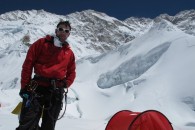

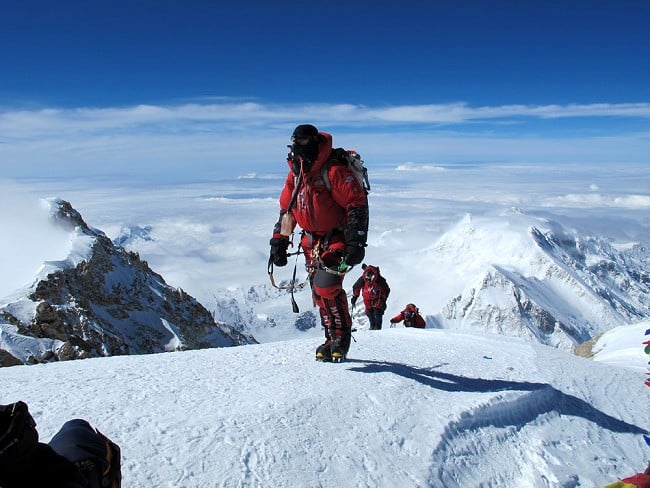
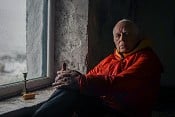
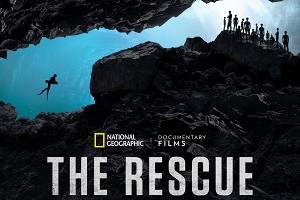
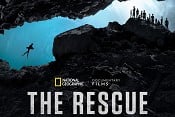
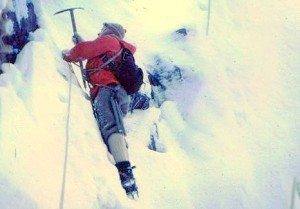









Comments